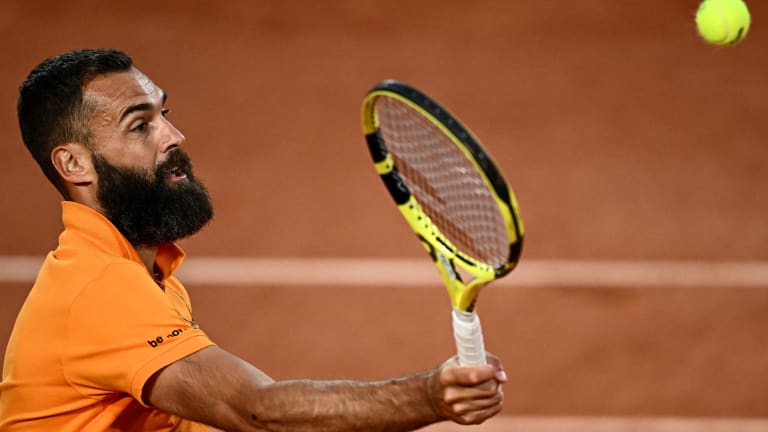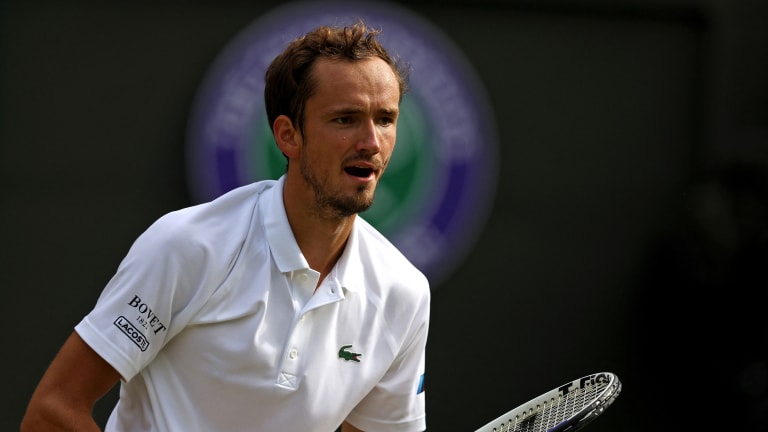Wimbledon
Reaction to tours' stripping Wimbledon of its ranking points highlights player discontent
By May 27, 2022Wimbledon
Darren Cahill: Jannik Sinner watches more Carlos Alcaraz matches than he does with any other player
By Jul 14, 2025Wimbledon
Jannik Sinner reignites Carlos Alcaraz rivalry with Wimbledon victory
By Jul 14, 2025Wimbledon
Jannik Sinner reversed his usual pattern against Carlos Alcaraz. It won him Wimbledon
By Jul 14, 2025Wimbledon
Veronika Kudermetova and Elise Mertens win women's doubles title at Wimbledon
By Jul 13, 2025Wimbledon
Joy to the World: What Carlos Alcaraz has, and what we are enjoying
By Jul 13, 2025Wimbledon
Iga Swiatek keeps surprising herself after Wimbledon title caps "surreal" turnaround on grass
By Jul 12, 2025Wimbledon
Iga Swiatek wins first Wimbledon, sixth Grand Slam title with 6-0, 6-0 rout of Amanda Anisimova
By Jul 12, 2025Wimbledon
Wimbledon men's final preview: Will Carlos Alcaraz, Jannik Sinner share another epic?
By Jul 12, 2025Wimbledon
Julian Cash, Lloyd Glasspool become first all-British pair to win Wimbledon men's doubles title since 1936
By Jul 12, 2025Reaction to tours' stripping Wimbledon of its ranking points highlights player discontent
The ATP and WTA may have overplayed their hand.
Published May 27, 2022
Advertising
Advertising

Never one to shy away from controversy, Benoit Paire had choice words for the ATP tour at Roland Garros.
© AFP via Getty Images
Advertising

Medvedev advanced to the round of 16 for the first time at Wimbledon last year.
© AFP via Getty Images
Advertising

Get to Know, Now: Henry Searle
The 2023 Wimbledon boys' champ trusts self-improvement mindset will see things fall into place.